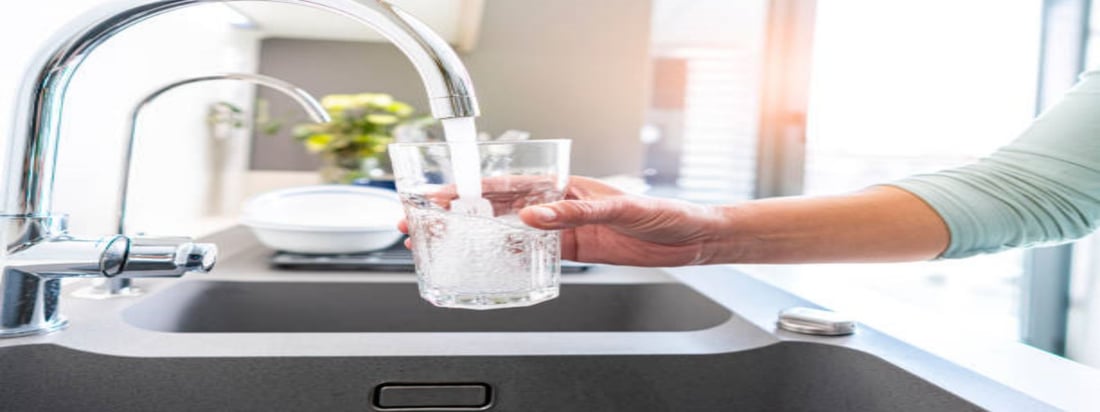The Importance of Boiling Water to Remove Chlorine
When it comes to ensuring the safety of our drinking water, one common concern is the presence of chlorine. Chlorine is often added to tap water as a disinfectant, but it can have negative effects on our health if consumed in large quantities. Boiling water is a simple and effective method to remove chlorine from your drinking water. In this article, we will explore the benefits of boiling water to remove chlorine, how it works, and other important considerations.
1. Understanding Chlorine in Tap Water
Before we delve into the process of removing chlorine through boiling water, let's first understand why chlorine is present in tap water. Chlorine is added to municipal water supplies to kill bacteria, viruses, and other pathogens that can cause waterborne diseases. While it plays a crucial role in ensuring the safety of our drinking water, chlorine can also react with organic matter and create disinfection byproducts that may have adverse health effects.
2. The Drawbacks of Chlorine in Drinking Water
While chlorine is effective in disinfecting water, it can have some drawbacks. Some people may experience an unpleasant taste or odor in their tap water due to the presence of chlorine. Additionally, prolonged exposure to chlorine in drinking water has been linked to certain health issues, such as respiratory problems and an increased risk of certain cancers. Therefore, it is important to take steps to remove chlorine from your drinking water.
3. How Boiling Water Removes Chlorine
Boiling water is a simple and effective way to remove chlorine from tap water. When water is brought to a boil, chlorine gas is released into the air as a result of the high temperature. This process, known as evaporation, helps to eliminate chlorine from the water. However, it is essential to note that boiling water will not remove other contaminants or impurities, such as heavy metals or pesticides. Therefore, it is recommended to use additional filtration methods or rely on bottled water if you have concerns about these contaminants.
4. Boiling Water as a Chlorine Removal Method
Boiling water is a convenient and cost-effective method to remove chlorine from tap water. To effectively remove chlorine, bring the water to a rolling boil and let it continue boiling for at least 15 minutes. This will ensure that the chlorine gas is released and the water is safe to consume. However, if you are at a higher altitude, you may need to boil the water for a longer duration to achieve the same results.
5. Other Methods to Remove Chlorine from Water
While boiling water is an effective method, there are other ways to remove chlorine from tap water. One option is to use activated carbon filters, which are commonly found in water filter pitchers or faucet attachments. These filters work by adsorbing chlorine and other impurities, providing you with clean and chlorine-free water. Another popular method is to use a dechlorination agent, such as vitamin C tablets or sodium bisulfite, to neutralize the chlorine in the water.
6. Considerations When Boiling Water
While boiling water is a reliable method to remove chlorine, there are a few considerations to keep in mind. First, boiling water will not remove other contaminants, so if you have concerns about other impurities in your tap water, it is advisable to use additional filtration methods. Additionally, boiling water can lead to the loss of some volatile compounds, such as certain minerals or dissolved gases. If you prefer to retain these compounds, you may want to consider alternative methods of chlorine removal.
7. Boiling Water for Different Purposes
Boiling water to remove chlorine is not only important for drinking water but also for various other purposes. When you boil water for cooking or preparing beverages, such as tea or coffee, you ensure that any chlorine present in the water does not affect the taste or aroma of your food or drink. Boiling water can also be beneficial for bathing, as it reduces the chlorine exposure to your skin and respiratory system during showers or baths.
8. The Benefits of Removing Chlorine
Removing chlorine from your drinking water offers several benefits. Firstly, it improves the taste and odor of the water, making it more enjoyable to drink. Additionally, by reducing your exposure to chlorine, you may experience fewer respiratory issues, such as coughing or wheezing. Moreover, removing chlorine can also prevent potential long-term health risks associated with prolonged exposure to disinfection byproducts.
9. Precautions When Boiling Water
While boiling water is a simple process, there are a few precautions to keep in mind. It is important to use a clean pot or kettle to prevent any contamination. Additionally, be cautious when handling boiling water to avoid burns or accidents. Always let the water cool down before transferring it to a storage container or using it for drinking or cooking purposes. Taking these precautions ensures the safety and effectiveness of boiling water to remove chlorine.
10. Conclusion
Boiling water is a reliable and accessible method to remove chlorine from tap water. By understanding the importance of chlorine removal and following the proper boiling techniques, you can ensure that your drinking water is free from chlorine and safe for consumption. However, it is essential to remember that boiling water will not remove other contaminants, so it is advisable to use additional filtration methods or rely on bottled water if you have concerns about other impurities.

